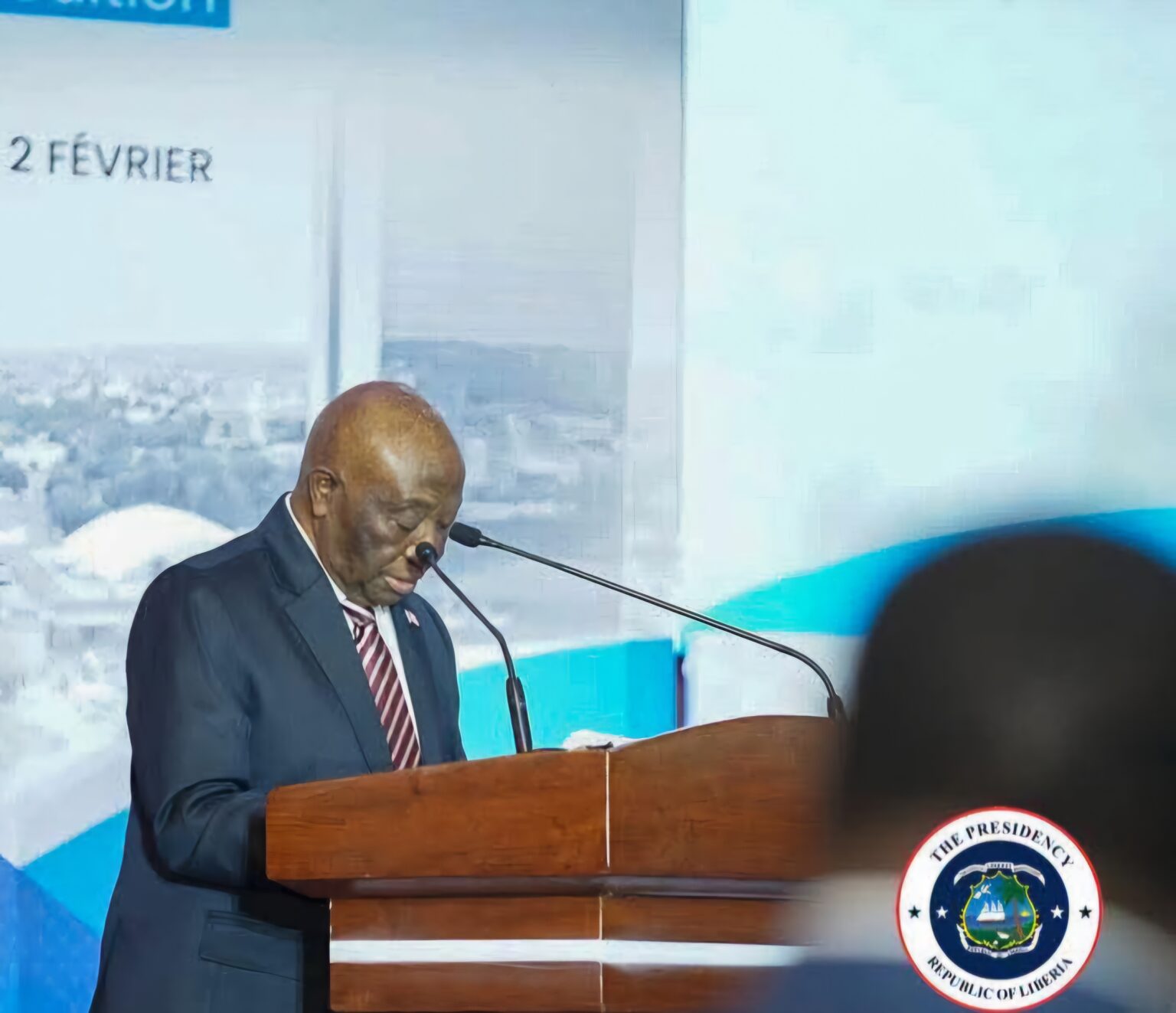By: Julius Konton
President Joseph Nyuma Boakai of Liberia delivered a poignant and reflective address at the 2nd Edition of the Lomé Peace and Security Forum on Saturday, calling for an African-owned and African-led approach to peacebuilding and security on the continent.
Peace he stated is Not the Silence of Guns, But the Presence of Justice.
President Boakai, now 80, recounted Liberia’s painful journey from civil war to national renewal, emphasizing that lasting peace must be built on justice, reconciliation, and inclusive development.
“Our peace has lasted for over two decades because it is owned by the people,” Boakai said, highlighting the role of grassroots actors chiefs, women, youth, and civil society—in rebuilding Liberia after the conflict.
Speaking in a city that once hosted the historic Lomé Peace Accords, Boakai paid tribute to Togo’s role in West Africa’s peace processes, and to regional solidarity.
“Lomé has earned a legacy that commands respect and gratitude,” he said, referencing how Liberian and Sierra Leonean factions found refuge and resolution in Togo during the 1990s.
Boakai’s address was a stark reminder of Liberia’s own troubled past, including the 1980 coup, two civil wars, and years of instability. Yet, he used this platform to show how regional cooperation like the 2003 Accra Comprehensive Peace Agreement turn conflict into opportunity.
Making reference to Truth, Justice, and Reconciliation, Boakai underscored Liberia’s transitional justice efforts, including the establishment of a Truth and Reconciliation Commission (TRC) and current moves to set up a War and Economic Crimes Court.
“There can be no lasting peace without justice and reconciliation,” he declared. “Accountability strengthens peace, not weakens it.”
The Liberian leader also cited recent symbolic acts such as a state apology to war victims and reburials of past presidents as national efforts to restore dignity and confront painful truths.
In his remarks, President Boakai stressed that weak institutions breed instability.
His administration, he noted, is implementing governance reforms focused on transparency, inclusion, and economic justice.
“True security is not only the absence of war, but protection from poverty, disease, and environmental degradation,” he added.
Highlighting the urgent issue of youth migration, Boakai called the exodus of African youth across dangerous routes to Europe “one of the most troubling and persistent images of our time.”
“Our youth should be rebuilding our nations, not fleeing them,” he said. “Investing in them is not charity, it is a peacebuilding strategy.”
He emphasized that it is time that Africa must define its own Security Agenda.
With instability rising from the Sahel to the Horn of Africa, Boakai emphasized the importance of unity and proactive engagement by regional bodies like ECOWAS, the African Union, and the Mano River Union.
“When spider webs unite, they can tie up a lion,” he quoted from an African proverb, underscoring that peace must be homegrown, sustained by Africans, and adapted to Africa’s realities.
Among other things, He calls for: Inclusive political systems, Universal access to justice, Human-centered security, Economic inclusion, especially for youth and women and Empowerment of regional early-warning and conflict prevention mechanisms.
As Liberia prepares to rejoin the United Nations Security Council, Boakai said his country will act as a “humble messenger” of African resilience.
“Peace is not a destination; it is a journey,” he concluded. “And Africa’s peace is the world’s peace.”
The Lomé Peace and Security Forum is an emerging continental platform that brings together African leaders, diplomats, and experts to address evolving security challenges.
This year’s theme, “Africa Facing Complex Security Challenges: How to Build and Consolidate Peace and Stability in a Changing World,” reflects growing concerns over coups, extremism, and socio-economic pressures.
President Boakai’s presence marks a reaffirmation of Liberia’s regional leadership in peacebuilding, shaped by lived experience and hard-won lessons from conflict.
